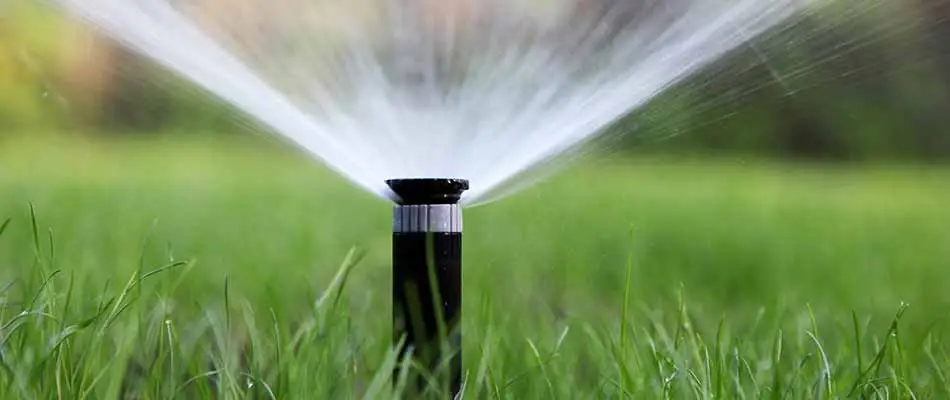When the autumn weather sets in and temperatures start to drop in areas if Northern Oregon, like Gresham, you may be inclined to stop watering your lawn abruptly. It is an easy misunderstanding to believe watering your lawn is just a summer task. During the summer, consistent water helps you maintain a lush, green, and healthy lawn in the hotter months of the year.
Why You Should Change Your Approach to Watering Your Lawn in the Fall
Once cooler weather starts to set in and the leaves start to fall, your approach to watering your lawn has to adjust to make accommodations for these changes. In regions with four distinct seasons, the fall is a critical period of growth for cool season grasses. The temperature drop, shorter days, and slower grass growth allow the lawn optimal daylight hours to soak in sunlight and moisture without the heat of the summer.
Keeping your lawn hydrated during this time is necessary for the roots to get their essential nutrients, before going into winter dormancy.
How the Cold Temperatures Affect the Ground & Root System of Your Lawn
Did you know that winter creates drought-like conditions for your lawn? The cold temperatures that freeze the ground also freeze your lawn's root system. This deprives your roots and lawn of the hydration it craves to maintain its health. Watering up until the freeze will help your roots get as much hydration as possible to last through the winter.
Guidelines for Proper Watering in Gresham, Happy Valley, Troutdale, and other areas in Northern OR
In Gresham, Happy Valley, Troutdale, and other areas of Northern OR, it is important to be able tofollow a loose hydration schedule during the floating temperatures in autumn. Some weeks are going to be hotter and drier, while other weeks will be in the low temperatures heading into winter. These guidelines help ensure good watering techniques in the fall.
- Provide supplemental watering for your lawn until the first hard frost.
- If your area gets at least 1 inch of rainfall during the week, watering is not necessary.
- Weeks, where the weather is dry and unseasonably warm, will require multiple days of watering.
Overwatering your lawn can lead to fungal diseases which can be hard to repair. Be careful to give your lawn enough water, but watering as if it is summertime will be detrimental to your property.
Maintaining a Regular Watering Schedule for Newly Established, Aerated, or Overseeded Lawns
During the fall, lawns that are newly established, or lawns that have been aerated and overseeded, require a different pattern of watering. These lawns will need a regularly maintained watering schedule to promote healthy growth and to assist in establishing the root system of the grass prior to winter.
By following the guidelines outlined by J&C Lawn Care, you will ensure that your lawn is getting the watering it needs during the transitional season of fall.



Comments (0)
Thanks for your comment!
Thanks for your feedback! Your comments have been successfully submitted! Please note, all comments require admin approval prior to display.
Error submitting comment!
There is a problem with your comment, please see below and try again.